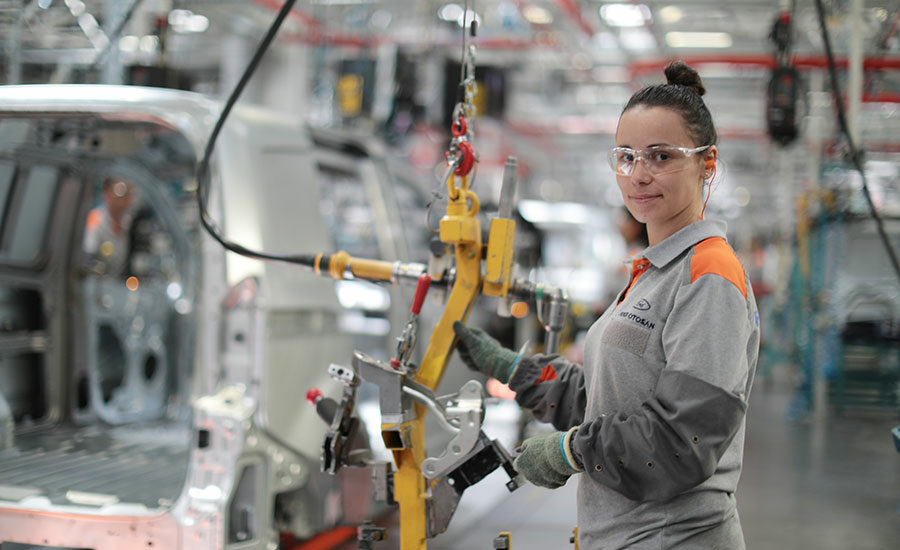PALO ALTO, CA—Quantum computing promises to be the next big leap in technology, enabling next-generation applications in artificial intelligence, smart manufacturing and supercomputers. It can manage calculations too complicated for traditional machines.
Ford Otosan, a joint-venture between Ford Motor Co. and Koç Holding, recently deployed quantum computing at its assembly plant in Gölcük, Turkey, to streamline vehicle sequencing operations.
The technology was supplied by D-Wave Quantum Systems Inc. It has improved production of Ford Transit vans, which have more than 1,500 variants. This model variability presents manufacturing efficiency challenges, because producing identical products consecutively is significantly more productive than frequently adjusting for custom specifications. Sequencing requires maximizing throughput and adhering to physical and workforce constraints of the body shop, paint shop and final assembly line.
Ford Otosan reduced the scheduling time of 1,000 vehicles per run from 30 minutes to less than five. The technology also provided more flexibility to adapt to changes in demand or auto part availability, maintaining productivity without disruption.
“It is imperative that [we] maintain the highest standards of production processes and efficiencies to meet customer demand,” says Ziya Dalkılıç, a data scientist at Ford Otosan. “Working with D-Wave’s technology, we’ve deployed a quantum optimization application that goes beyond what we were able to achieve with a purely classical computing approach.”
“Production scheduling demands meticulous planning and agile responses, and classical computing methods can often struggle to keep up with the manufacturing industry’s growing scale and complexity,” adds Alan Baratz, Ph.D., CEO of D-Wave. “For manufacturers on the leading-edge of innovation, such as Ford Otosan, quantum computing technology has proven capable of finding better solutions to complex, real-world problems than classical computing alone. We’re thrilled to see this application move into production and help Ford Otosan realize the powerful benefits of quantum.”
By reducing workload imbalances, Ford Otosan aims to minimize the frequency of unplanned maintenance, ensuring a more stable production process. Optimizing longer schedules can alsosmart help mitigate supplier uncertainties and reduce delays.
